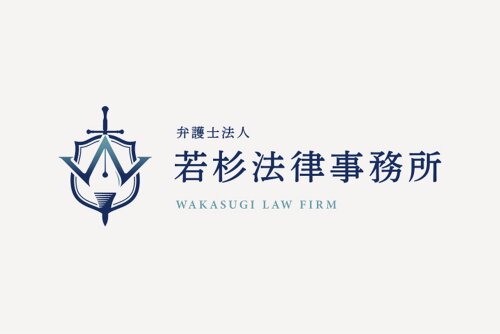Best Assault & Battery Lawyers in Fukuoka
Share your needs with us, get contacted by law firms.
Free. Takes 2 min.
List of the best lawyers in Fukuoka, Japan
About Assault & Battery Law in Fukuoka, Japan
In Fukuoka, as throughout Japan, assault and battery are considered serious criminal offenses. Under Japanese law, assault refers to any act that inflicts physical harm or threatens imminent physical harm to another person. Battery is often understood as the actual act of physical violence or injury against another. Both offenses can lead to criminal charges, civil liability, or both. The law in Fukuoka is based on national legislation but may have local procedures in enforcement and prosecution. Understanding your rights and responsibilities in these cases is essential to protect yourself legally and personally.
Why You May Need a Lawyer
Facing an assault and battery issue can be daunting, and several situations might require you to seek legal help in Fukuoka:
- You are accused or charged with assault or battery
- You have been the victim of physical violence
- You need advice on pressing or dropping charges
- You are being questioned by the police regarding an incident
- You are negotiating settlements or compensation with another party
- Court proceedings are pending or you have been summoned
- You are concerned about immigration status impacts due to criminal allegations
Lawyers provide guidance on the legal process, representation in negotiations and court, and help protect your rights and interests throughout the case.
Local Laws Overview
Assault and battery in Fukuoka are governed primarily by the Japanese Penal Code. Key points include:
- Assault, defined as a violent act against another person, can be punished by imprisonment, with or without work, for up to two years, a fine, or penal servitude.
- If injury results, penalties can increase substantially, including longer imprisonment and heftier fines.
- Bodily injury is treated separately and more seriously than simple assault.
- Attempted assault can also be prosecuted.
- Self-defense may be a valid legal defense, but it is interpreted narrowly.
- Victims may claim compensation for damages through civil proceedings.
- Prosecution may proceed even without a complaint from the victim, depending on the seriousness of the offense.
Procedures may include police investigation, prosecution review, formal charges, and court hearings. A criminal record can have lasting implications for work, travel, and residency status in Japan.
Frequently Asked Questions
What is considered assault under Japanese law?
Assault is defined as any act that inflicts physical harm or threatens imminent harm to another person, even if no injury occurs.
What should I do if I am accused of assault or battery in Fukuoka?
Remain calm, do not resist law enforcement, exercise your right to remain silent, and contact a lawyer as soon as possible to protect your rights.
Can a victim drop charges for assault in Japan?
In some cases, a victim can withdraw their complaint, but the prosecutor may choose to continue with criminal charges, depending on the severity and public interest.
What are the possible penalties for assault and battery?
Penalties range from fines to imprisonment. Aggravating factors, such as serious injury or use of a weapon, can increase penalties.
Are self-defense claims recognized in Fukuoka?
Yes, but self-defense is narrowly defined. The response must be proportional to the threat faced, and excessive force may lead to criminal liability.
How long does an assault case usually take?
The duration varies based on the complexity of the case, evidence, and court schedules, but many cases resolve within several months.
Can foreign nationals be deported for assault?
Yes. Conviction for certain offenses, including assault and battery, can result in deportation or refusal to renew residency permits.
Is it possible to settle an assault case out of court?
Yes, civil settlements are possible, and criminal proceedings may sometimes be influenced by apologies and compensation, but do not guarantee dismissal.
What evidence is important in an assault case?
Medical reports, witness statements, video recordings, and police reports are commonly used as evidence in both criminal and civil proceedings.
Should I cooperate with police investigations?
It is important to be respectful and cooperative, but you also have the right to remain silent and to have a lawyer present during questioning.
Additional Resources
- Fukuoka Prefectural Police - Crimes Division
- Legal Affairs Bureau (Houmukyoku) - Fukuoka Branch
- Japan Legal Support Center (Houterasu)
- Victim Support Network in Fukuoka
- Local Bar Associations in Fukuoka Prefecture
- Embassies or Consulates (for non-Japanese nationals)
These resources can provide legal information, referral to qualified lawyers, and guidance on navigating the criminal justice system in Fukuoka.
Next Steps
If you need legal assistance with an assault and battery matter in Fukuoka, consider the following actions:
- Document the incident thoroughly, including taking photographs, preserving messages, and obtaining medical reports if needed.
- Contact a qualified criminal defense lawyer or legal aid organization as soon as possible.
- Avoid discussing the incident with others except your lawyer and refrain from making public statements.
- Follow your lawyer’s advice during police investigations, negotiations, or court proceedings.
- If you are a victim, seek support services for physical, emotional, and legal assistance.
Taking action promptly can make a significant difference in the outcome of your case and help safeguard your legal rights in Fukuoka, Japan.
Lawzana helps you find the best lawyers and law firms in Fukuoka through a curated and pre-screened list of qualified legal professionals. Our platform offers rankings and detailed profiles of attorneys and law firms, allowing you to compare based on practice areas, including Assault & Battery, experience, and client feedback.
Each profile includes a description of the firm's areas of practice, client reviews, team members and partners, year of establishment, spoken languages, office locations, contact information, social media presence, and any published articles or resources. Most firms on our platform speak English and are experienced in both local and international legal matters.
Get a quote from top-rated law firms in Fukuoka, Japan — quickly, securely, and without unnecessary hassle.
Disclaimer:
The information provided on this page is for general informational purposes only and does not constitute legal advice. While we strive to ensure the accuracy and relevance of the content, legal information may change over time, and interpretations of the law can vary. You should always consult with a qualified legal professional for advice specific to your situation.
We disclaim all liability for actions taken or not taken based on the content of this page. If you believe any information is incorrect or outdated, please contact us, and we will review and update it where appropriate.










